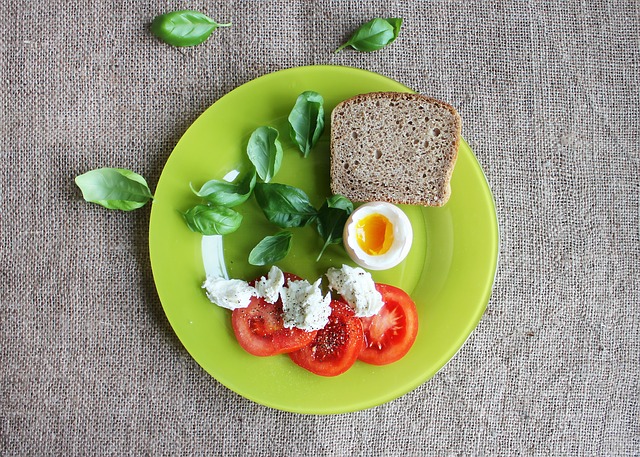The Mediterranean diet is not a classical diet, but an everyday diet which nations who live on the Mediterranean shores consume.
Unlike most diets that focus on the prohibition of certain foods, The Mediterranean diet focuses on what is permitted. Foods that are recommended to be consumed are delicious and that’s why most people don’t feel the need to go back to the old unhealthy diet.
The Mediterranean diet provides regular physical activity and consumption of vegetables, fruits for dessert, olive oil as main source of fat, dairy products, fish and poultry in moderation, 1-4 eggs a week, red meat in small quantities and wine in small to moderate amounts.

The Mediterranean diet – Nutrition and health benefits
The Mediterranean diet gained its popularity after scientists noticed a smaller number of heart diseases in countries like Spain and Italy. Since then, there have been many researches and it is discovered that the Mediterranean diet is one of the healthiest in the world.
The Mediterranean diet against heart disease:
Olive oil that is recommended in the Mediterranean diet, contains mono-unsaturated fats that are good for the heart. The latest research in this area has shown that consumption of olive oil is the secret why the Mediterranean diet is so healthy. It helps to suppress the genes that lead to inflammation and the occurrence of heart disease.
The Mediterranean diet reduces the risk of cancer:
Studies have shown that having a Mediterranean diet can help you to reduce the risk of cancer by 12%. One of the largest studies in this area, in which 26,000 Greeks took part, showed that only the use of olive oil reduces the risk by 9%. The changes in the diet, like consumption of less red meat and more beans, reduces the cancer risk by 12%. Separate research has found that the addition of broccoli in the diet further reduces the risk of prostate cancer in men.
The Mediterranean diet protects the brain:
A research that lasted four years showed that people who have Mediterranean diet have a 40% lower risk of developing Alzheimer’s disease compared with those who don’t have this diet.
The Mediterranean diet helps to reduce the cholesterol in the body, especially the ‘bad’ cholesterol, controls the diabetes and reduce the risk of type 2 diabetes, protects against dementia and reduces the risk of Parkinson’s disease. When you take all of this into account, it becomes clear that the Mediterranean diet prolongs life.
What includes the Mediterranean diet
The Mediterranean diet includes: regular consumption of olive oil, legumes, unrefined grains, fruits and vegetables, moderate consumption of dairy products, fish, eggs, poultry meat and low consumption of red meat.
Olive oil:
Everybody associates olive oil, especially extra virgin olive oil with the Mediterranean diet, because it’s its core. It contains mono-unsaturated fat, that is believed to reduce the cholesterol, especially the ‘bad’ (LDL) cholesterol. Olive oil reduces the risk of inflammation and protects the heart.
Olive oil should be used as a substitute for cooking oil and butter.
No matter how healthy the olive oil is, it contains many calories and shouldn’t be used too much, especially if you’re aiming to lose weight.
Fruits and vegetables:
Every diet should include fruits and vegetables because they contain the most important nutrients. Experts believe that they are important for the positive effects of the Mediterranean diet. Fruits and vegetables are a rich source of fiber, antioxidants, vitamins and minerals.
It is best to consume fruit and vegetables as fresh salad, but also grilled and roasted or steamed.
The Mediterranean diet recommends a daily consumption of fruits and vegetables in large quantities. They must be present in every meal, because they contain few calories and if you eat more of them, you will feel full and you won’t want to eat fatty foods.
Fish:
Fish is rich in protein and omega-3 fatty acids. Omega-3 fatty acids reduce the triglycerides and improve the health of the blood vessels. The consumption of fish improves the appearance of the skin, heart health and brain.
Fish should be eaten baked in the oven or grilled. If you want to fry it, you should use only a small amount of olive oil.
The Mediterranean diet recommends moderate consumption of fish, once or twice a week.
Wine:
Scientists for decades have been debating on whether alcohol is harmful or beneficial to health. Many of them doesn’t recommend you to consume alcohol, because excessive drinking brings harmful consequences. But many studies have shown that alcohol, particularly red wine, when consumed in moderation has a positive effect on the heart. It contains many antioxidants.
Besides red wine, the Mediterranean diet allows you to drink white wine or beer.
Women (and all people over 65 years old) should consume no more than 4.5 oz of wine per day and men no more than 8 oz. If you can’t restrict your alcohol intake, it is better not to drink at all.
Dairy products:
Yogurt, milk and dairy products contain calcium and are useful for strengthening the bones. That is why they help to protect you against osteoporosis.
When you consume these products you should look out for the presence of fats. It is best to consume products that are low fat, with fat less than 2%.
The Mediterranean diet recommends moderate consumption of dairy products in small quantities.
Grains:
It is believed that grains contribute a little to the positive effects of the Mediterranean diet. But they contain vitamins, minerals and fibers that are necessary for a balanced diet.
In your diet you should include corn,wheat, rye, rice, oats and maize. The less processed the better, because in the process of processing the grains, some nutrients are lost. Bread shouldn’t be combined with butter or margarine, because they contain harmful trans fats.
In the Mediterranean diet a frequent consumption of cereals is recommended.
Beans and nuts:
Beans and nuts contain protein, which can serve as a substitute for meat. Walnuts, almonds and hazelnuts contain very little saturated fats and therefore they are good for this diet.
Beans can be consumed as part of salads, soups, stews or pasta. Nuts are the best snacks and will make you feel full in no time. But you should avoid roasted and salted nuts.
Beans can be consumed regularly but in small quantities. Nuts are high in calories and you should be careful not to eat too much of them. A handful per day is more than enough.
Meat and eggs:
Lamb, veal, poultry and eggs are a good source of protein. When consumed in small amounts they contribute to improving the health of the muscles, joints and heart.
The eggs are best consumed in the morning breakfast. The meat should be prepared on the grill or roasted in an oven. Fried meat should be removed from the diet, because it contains many calories and unhealthy fats.
Red meats should be eaten very rarely and in small quantities. Chicken meat can be consumed in moderate amounts. Eggs should be consumed in moderation too, around 1-4 eggs per week.
To be able to lose weight with the Mediterranean diet, you should limit the size of your portions and you should have a regular physical activity. The Mediterranean diet needs to be not a short term diet but your lifestyle.



